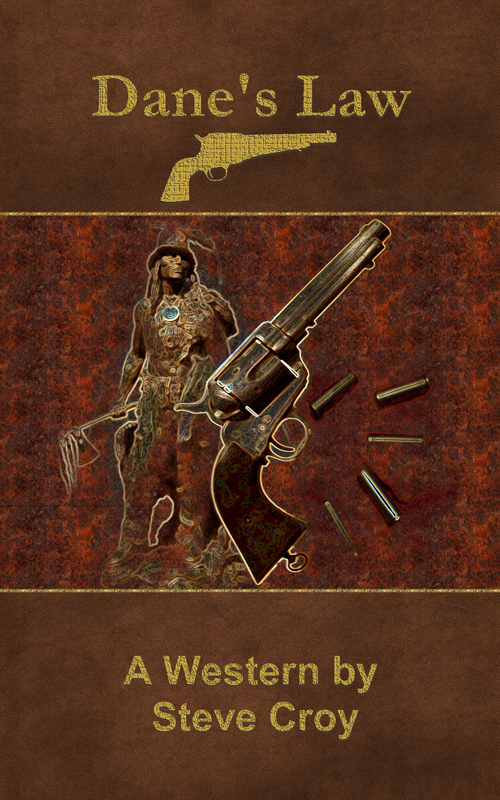Buy Now!
Available now, on Amazon a Kindle version of the story is ready for download. If you prefer to turn pages, a paperback version of the novel is available for purchase. If you have read the story, let me know if you enjoyed the book. It is easy to do; just click on this link to fill out a review. Thanks!

For more books written by Steve Croy, try the Library Page. Happy reading! - SC
Life Bytes
Eddie Cygnarowicz likes organization, which can be trying—especially for someone whose last name no one can pronounce. Mistakenly, he thinks he has life down to a science. Just like programming, everything can be structured into an algorithm that produces predictable results. Of course, life is more complex than flipping bits and bytes, as he discovers. Unexpected events can make a shamble of the best-laid plans. Life is more closely allied with chaos than logic.
Keeping pace with fast-changing requirements and rapidly evolving technology is difficult. But even when you’ve made a mistake, you’re just a bit off in a binary world. Eddie is a skilled software engineer, proud of his expertise as a code monkey. Unreasonable requests, missing requirements, and impossible deadlines are standard in application development. Eddie combats the uncertainties of the job and life’s surprises with humor, cynicism, and the misguided notion that he’s in control of his life and career.
Through trials and tribulations, Eddie Cygnarowicz learns more than he cares to know about the myths of job security and business ethics. But that’s life. There are lessons to be learned whether you asked for them or not. He thought he had his life mapped out, but somewhere in the chaos, he lost the source code. Still, he’s hopeful he can get back on track with a re-write and a few revisions. Life is a multiple-act play—Eddie isn’t sure whether it’s supposed to be a tragedy or a comedy. He’s determined to figure out his part, even as the script keeps changing.






 TIME TO GET UP ALREADY? I rubbed my eyes in disbelief. Patting my nightstand, searching for the alarm, I thought I must have gone blind. Then I realized it was still dark. As the fog lifted from my sleep-befuddled brain, I realized the phone woke me, not the alarm. Of course, the thought didn’t sink in until after I had knocked the alarm clock to the floor. Who the fuck would be calling me at this ungodly hour of the morning? With a sigh, I resigned myself to start the day early. It could only be night shift operations. Something had crashed, spilling bits and bytes all over the raised tiles of the computer room floor. There was some unwritten law in the IT universe: no applications fail before 10 pm. Any exception that crashes the system must occur after midnight.
TIME TO GET UP ALREADY? I rubbed my eyes in disbelief. Patting my nightstand, searching for the alarm, I thought I must have gone blind. Then I realized it was still dark. As the fog lifted from my sleep-befuddled brain, I realized the phone woke me, not the alarm. Of course, the thought didn’t sink in until after I had knocked the alarm clock to the floor. Who the fuck would be calling me at this ungodly hour of the morning? With a sigh, I resigned myself to start the day early. It could only be night shift operations. Something had crashed, spilling bits and bytes all over the raised tiles of the computer room floor. There was some unwritten law in the IT universe: no applications fail before 10 pm. Any exception that crashes the system must occur after midnight.
Stifling a yawn, I reluctantly answered the persistently annoying ringtone. I recognized the voice immediately, Tim Jamison, third shift operations staff. “I hate to wake you,” TJ began. “But Larry isn’t answering.” It figures, I thought. The data center operations manager, Lawrence Brinker, was notorious for ignoring late-night phone calls.
“I fail to see how this makes it my problem,” I replied. I rolled out of bed, deciding to make some coffee since I was awake. Application developers develop a caffeine addiction earlier on in their careers. Long hours, late nights, and impossible deadlines demand a stimulant. Coffee isn’t tested for in the standard UATs (Urine Analyst Tests). A study should be conducted to determine how long a developer can function without sleep, given only coffee and dark chocolate.
“C’mon, Eddie. The FTP process is failing. Something is wrong, and you know I’m working with a short window here. The files have to go before 5:30, or we’re in default.”
“Have you checked the logs for the error?” There was a moment of silence on the other end of the line. Ah-ha, I suspected as much. Rather than dig into the session logs, which admittedly could be a pain in the ass, the first and easiest solution to the problem was to call a developer and make it their problem.
“lt takes too long to untangle that crap,” TJ replied. “Every session spawns thousands of lines of garbage. Even when you find the failure, the message tells you it errored out, not what caused the error.”
Not really, I mentally noted. But to TJ’s point, there were a lot of statements to sift through, and many of the error messages were as cryptic as hieroglyphics. The point of failure might be traced back to an error message hundreds of lines earlier in the session. “Email a copy of the session log. I’ll take a look,” I felt magnanimous now that I was wide awake.
“Eddie, I am desperate here,” TJ pleaded. “That will take too long. Besides, they’re your programs, aren’t they? You wrote them.”
The generous spirit of cooperation drifted away like a cloud of smoke from a cheap cigar. “Uh, yes. I wrote those programs two years ago when we acquired the new vendors. They’ve been in production for quite some time. I assure you that programs do not spontaneously mutate after a specified number of months. Nor do they grow mold.”













